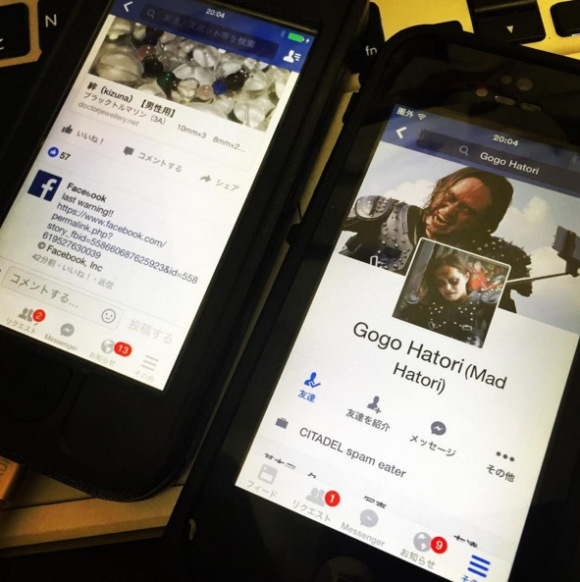
Our reporter goes undercover to see what happens when you voluntarily give your information and credit card info to Facebook spammers.
For as long as the internet has been around, two things have been a constant given: always being one or two clicks away from lewd material, and always being a couple of clicks away from a scam.
Before the days of social media, these scams usually came in the form of some wrongly deposed prince reaching out to you for help to transfer his family’s wealthy estate and giving you a little something in return for your effort—if only you’d be so kind as to share your bank account information with him first.
With the advent of large online retailers and social media sites, however, most online crooks have since moved on to trying to fool people with phishing scams via pop-up ads, spam comments, or e-mails made to look like legitimate corporate correspondence about account updates and security breaches. We all know that accidentally supplying your name, address, and credit card information in such scenarios can potentially have disastrous results, but to what extent? Our Japanese reporter Go Hatori decided to find out…
It didn’t take long for Go to find a potential scam. While browsing the official Facebook page for Yumi Furusato, a jewelry salon in Omotesando, Tokyo, which RocketNews24 featured in a (Japanese-language) article before, his eyes immediately fell on a comment and link from a potential scammer.
Clicking on the link revealed a notice informing him in grammatically incorrect English that his account would be deactivated if he didn’t supply the following information:
▼ Hmm, seems legit…
Not wanting to risk his own personal safety, Go held off on entering his information until he was ready to proceed with a disposable phone, a fake Facebook account, and a pre-paid debit card.
▼ Those are some mad selfie stick skills.
Unfortunately during that short period of time, the original site had at some point disappeared. But not to fear—Ms. Furukawa had our reporter’s back, and was kind enough to supply him with a link to another suspicious comment that had been posted on her page.
▼ Only 24 hours, you say?! There’s no time to lose!
It goes without saying that, just by looking at the “b” in “Facebook”, there’s no way this link could be official or trustworthy.
This particular font discrepancy was most easily distinguishable on an iPhone, but still noticeable enough to raise concerns no matter which platform the comment was viewed it on.
This was it! The experiment was about to unfold.
Logged in under his alias account Gogo Hatori (Mad Hatori), our man followed the link, leading him to a site similar to the one from before. He quickly got to filling in his “information.”
▼ Go’s alter-ego has had a tough life from the start, growing up on “Death Road.”
Upon clicking the confirmation button, a screen asking for credit card information appeared. Go reached for his brand new, pre-paid debit card, which he purchased at a neighborhood convenience store and could be used for payments of up to 3,000 yen (US$27).
Taking the plunge, he proceeded to fill in the rest of the requested info before clicking the next confirmation button.
Everything went through on the first try, no problem.
▼ Success!
Now all that was left to do was wait…
Sadly, nothing happened immediately after providing the scammers with this false information. But there was always the chance that they could have saved our reporter’s information for later use, so Go waited patiently for the next 40 days, checking every so often to see if anything suspicious was afoot.
Even after a month and a half had gone by, however, Go’s Facebook account remained completely untouched, without a single login or attempted login from another party. Perhaps the thieves had seen the error of their ways and had decided to go straight?
Furthermore, Go’s credit card balance remained the same; as far as he could tell, nothing had happened at all. C’mon spammers, is this really the best you could do?!
But wait! What’s this? Upon closer inspection of the credit card statement, it seems Go had been charged—and then credited 100 yen (US$0.90)—for Facebook ads. Although this hadn’t affected the available balance on the card any, it certainly was suspicious. He quickly made a quick call to Visa to inquire, but they were unable to shed much light on what had happened.
Maybe these scammers had felt a pang of remorse after taking our reporter’s hard-earned 100 yen, or on the other hand, maybe they had decided he had too little money on his card and that they had bigger fish to fry. We may never know, but to date the “worst” thing that happened to Go was an increase of English-language spam mail received on his phone. Beginning with a “Hello” or a “Hi”, each mail would follow up with someone introducing themselves from an advertising and quality-control firm, going on to explain about the nature of their work. Unfortunately, since SMS mail is limited to 160 characters, each mail got cut off, so the jury’s still out on what exactly they do. (Also, while Mad Hatori may be a wild kind of guy, English isn’t really his forte.)
▼ We may never know what kind of wonderful offers we have missed!
Since viewing texts costs the receiver money, extremely large increase in SMS spam could have been problematic, although this particular experiment didn’t warrant enough spam mail to make any dent in his phone bill.
So with 3,000 yen still left on his card and his experiment now complete, our reporter is now deciding what to treat himself with… Perhaps an English study workbook to help him decipher any possible spam mail in the future?
All images © RocketNews24
A message to our readers: While we’re sure you derived just as much amusement from our reporter’s experiment as we did, we would not advise conducting similar tests, and would like to remind you all to keep your personal information safe and secure when online since, after all, there’s a good chance our man simply got lucky here. That or they saw his profile pic and were just too intimidated to try anything…
[ Read in Japanese ]




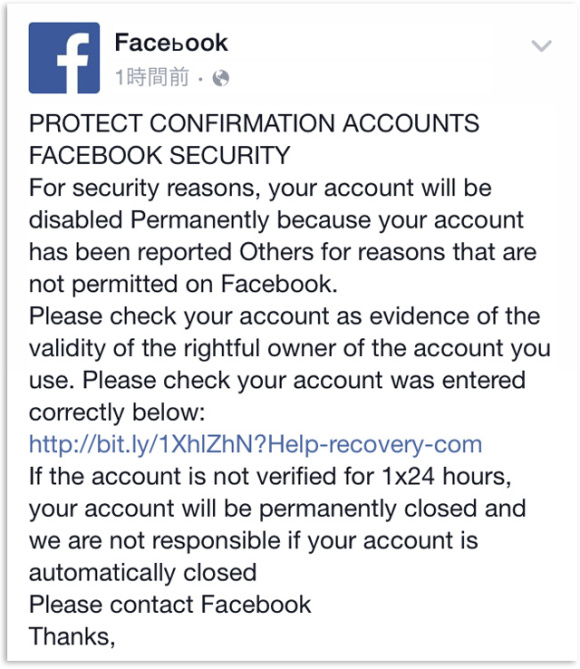


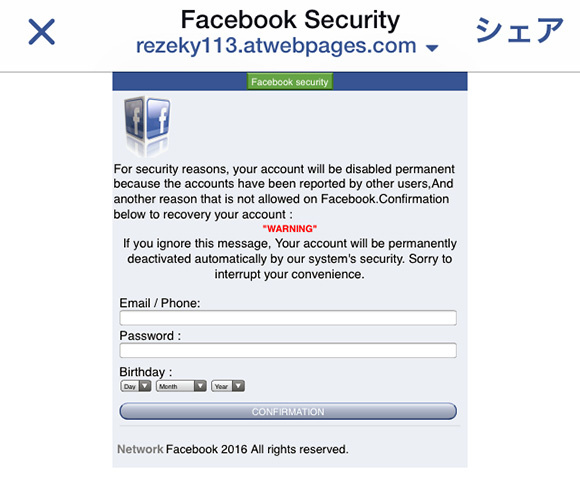
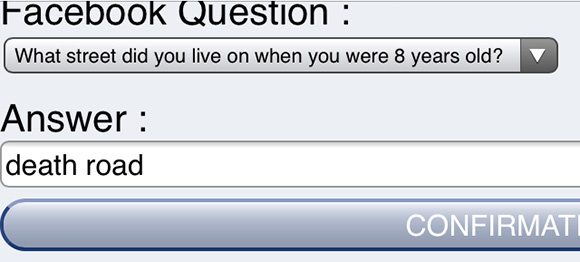
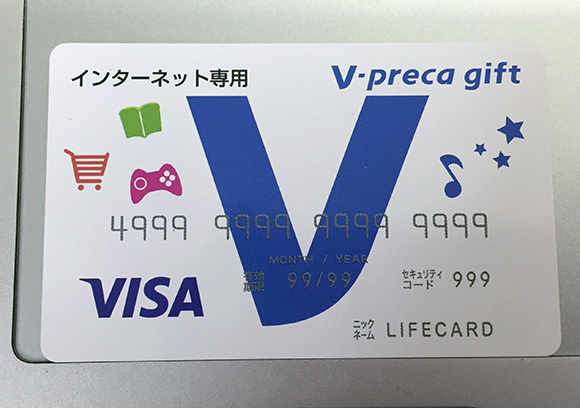
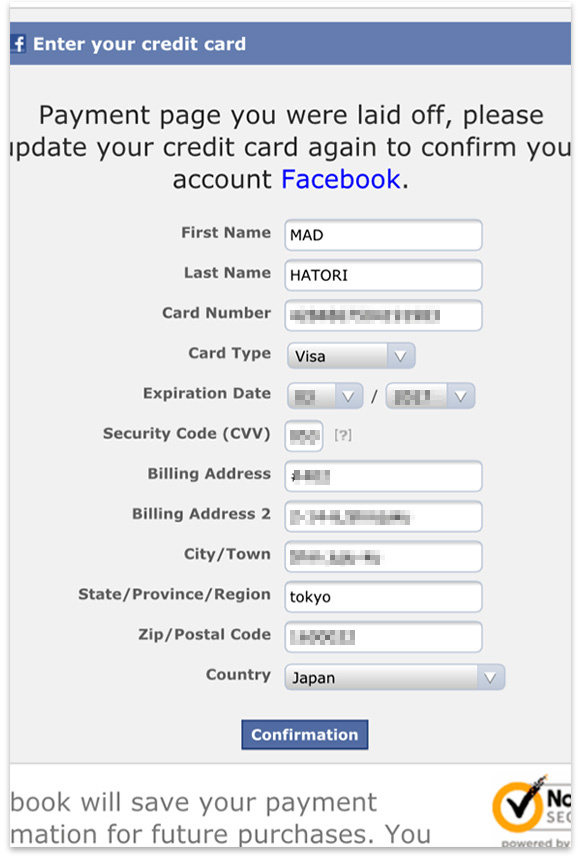
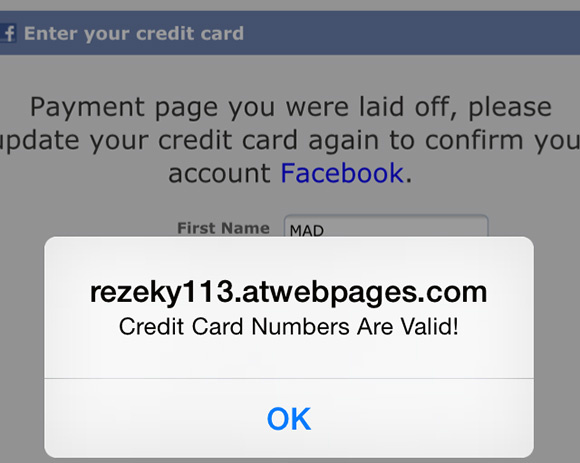
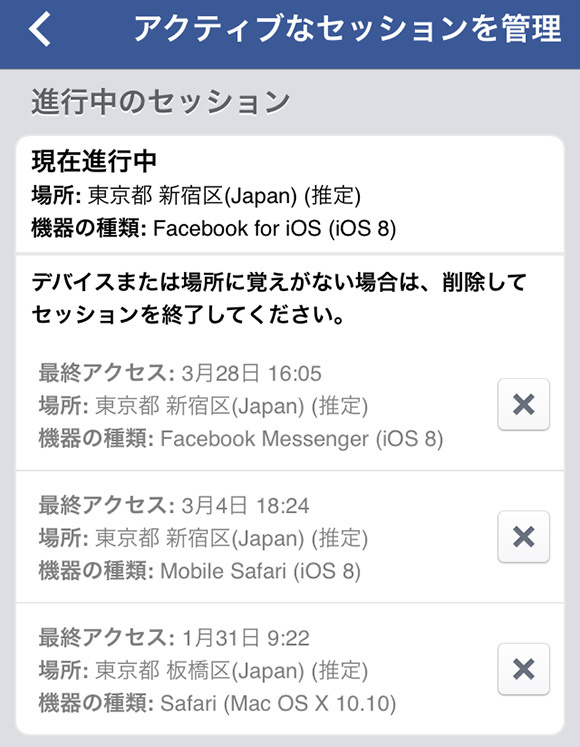



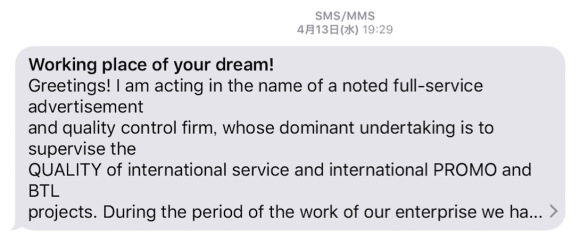
 We get a surprise offer from “Yusaku Maezawaa,” with an extra “a” for “a whole lot of money”
We get a surprise offer from “Yusaku Maezawaa,” with an extra “a” for “a whole lot of money” 15-year-old girl tries to scam adult out of $40,000 – gets caught dressed like a businessman
15-year-old girl tries to scam adult out of $40,000 – gets caught dressed like a businessman Traffic accident scammer caught on CCTV in China, ends up having to pay fine himself 【Video】
Traffic accident scammer caught on CCTV in China, ends up having to pay fine himself 【Video】 Heroic Japanese convenience store owner saves foreigner from online scam artist
Heroic Japanese convenience store owner saves foreigner from online scam artist Japanese police officer comes up with cute reminder to help people not get scammed over the phone
Japanese police officer comes up with cute reminder to help people not get scammed over the phone Naruto and Converse team up for new line of shinobi sneakers[Photos]
Naruto and Converse team up for new line of shinobi sneakers[Photos] Poop is in full bloom at the Unko Museums for cherry blossom season
Poop is in full bloom at the Unko Museums for cherry blossom season Starbucks Japan releases new sakura goods and drinkware for cherry blossom season 2026
Starbucks Japan releases new sakura goods and drinkware for cherry blossom season 2026 Fives places around Japan to appreciate the plum blossoms this season
Fives places around Japan to appreciate the plum blossoms this season Foreign tourists in Japan will get free Shinkansen tickets to promote regional tourism
Foreign tourists in Japan will get free Shinkansen tickets to promote regional tourism Cute coffins now available at Tokyo’s coffin relaxation salon[Photos]
Cute coffins now available at Tokyo’s coffin relaxation salon[Photos] Sakura Totoro is here to get spring started early with adorable pouches and plushies
Sakura Totoro is here to get spring started early with adorable pouches and plushies The other side of Shibuya Station has a great restaurant for trying tamagokakegohan
The other side of Shibuya Station has a great restaurant for trying tamagokakegohan Foreign worker in Japan fends off armed robber with single word, gets no respect from local media
Foreign worker in Japan fends off armed robber with single word, gets no respect from local media What’s up with the secret basement at this Japanese train station?
What’s up with the secret basement at this Japanese train station? Japan’s newest Shinkansen has no seats…or passengers [Video]
Japan’s newest Shinkansen has no seats…or passengers [Video] Foreigners accounting for over 80 percent of off-course skiers needing rescue in Japan’s Hokkaido
Foreigners accounting for over 80 percent of off-course skiers needing rescue in Japan’s Hokkaido Super-salty pizza sends six kids to the hospital in Japan, linguistics blamed
Super-salty pizza sends six kids to the hospital in Japan, linguistics blamed Starbucks Japan unveils new sakura Frappuccino for cherry blossom season 2026
Starbucks Japan unveils new sakura Frappuccino for cherry blossom season 2026 Take a trip to Japan’s Dododo Land, the most irritating place on Earth
Take a trip to Japan’s Dododo Land, the most irritating place on Earth Now is the time to visit one of Tokyo’s best off-the-beaten-path plum blossom gardens
Now is the time to visit one of Tokyo’s best off-the-beaten-path plum blossom gardens Can you eat lunch in Tokyo for less than 500 yen?
Can you eat lunch in Tokyo for less than 500 yen? New Family Mart cinema opens inside Japanese airport
New Family Mart cinema opens inside Japanese airport Japan releases first official sakura cherry blossom forecast for 2026
Japan releases first official sakura cherry blossom forecast for 2026 Archfiend Hello Kitty appears as Sanrio launches new team-up with Yu-Gi-Oh【Pics】
Archfiend Hello Kitty appears as Sanrio launches new team-up with Yu-Gi-Oh【Pics】 China’s don’t-go-to-Japan warning looks to be affecting tourist crowds on Miyajima
China’s don’t-go-to-Japan warning looks to be affecting tourist crowds on Miyajima Survey asks foreign tourists what bothered them in Japan, more than half gave same answer
Survey asks foreign tourists what bothered them in Japan, more than half gave same answer Japan’s human washing machines will go on sale to general public, demos to be held in Tokyo
Japan’s human washing machines will go on sale to general public, demos to be held in Tokyo Starbucks Japan releases new drinkware and goods for Valentine’s Day
Starbucks Japan releases new drinkware and goods for Valentine’s Day We deeply regret going into this tunnel on our walk in the mountains of Japan
We deeply regret going into this tunnel on our walk in the mountains of Japan Studio Ghibli releases Kodama forest spirits from Princess Mononoke to light up your home
Studio Ghibli releases Kodama forest spirits from Princess Mononoke to light up your home Major Japanese hotel chain says reservations via overseas booking sites may not be valid
Major Japanese hotel chain says reservations via overseas booking sites may not be valid Put sesame oil in your coffee? Japanese maker says it’s the best way to start your day【Taste test】
Put sesame oil in your coffee? Japanese maker says it’s the best way to start your day【Taste test】 No more using real katana for tourism activities, Japan’s National Police Agency says
No more using real katana for tourism activities, Japan’s National Police Agency says Mr. Sato gets a friend request from Yusaku Maezawa again, this time spells own name right
Mr. Sato gets a friend request from Yusaku Maezawa again, this time spells own name right Our reporter’s faith in the Google gods is shaken by a dubious online purchase of a luxury watch
Our reporter’s faith in the Google gods is shaken by a dubious online purchase of a luxury watch Executives arrested from scam dating sites that had 2.7 million users and only one female member
Executives arrested from scam dating sites that had 2.7 million users and only one female member Foreign-born convenience store manager in Japan saves elderly customer from being scammed
Foreign-born convenience store manager in Japan saves elderly customer from being scammed How much private info can a thief glean from a stolen smart phone? We investigate
How much private info can a thief glean from a stolen smart phone? We investigate We trick an online scammer into teaching us how to cook the best fried rice we’ve ever made
We trick an online scammer into teaching us how to cook the best fried rice we’ve ever made A scam artist called us from overseas and we had a bittersweet conversation about fried rice
A scam artist called us from overseas and we had a bittersweet conversation about fried rice We troll a scammer online, make him wish he’d never tried to take our money
We troll a scammer online, make him wish he’d never tried to take our money What happens when you try buying 5,000 followers on Instagram? Our reporter finds out【Experiment】
What happens when you try buying 5,000 followers on Instagram? Our reporter finds out【Experiment】 Our Japanese reporter offers up some safety advice for anyone traveling to Southeast Asia
Our Japanese reporter offers up some safety advice for anyone traveling to Southeast Asia Our Japanese writers dress up as Winter Shogun
Our Japanese writers dress up as Winter Shogun Our Japanese reporter talks to a stranger on Skype…things get awkward
Our Japanese reporter talks to a stranger on Skype…things get awkward Tokyo police found our lost wallet, but the story of how they did made us feel empty
Tokyo police found our lost wallet, but the story of how they did made us feel empty Our Japanese writers were taken to a mystery destination for their year-end party
Our Japanese writers were taken to a mystery destination for their year-end party What happens when you answer one of those sketchy social media comments offering easy money?
What happens when you answer one of those sketchy social media comments offering easy money?